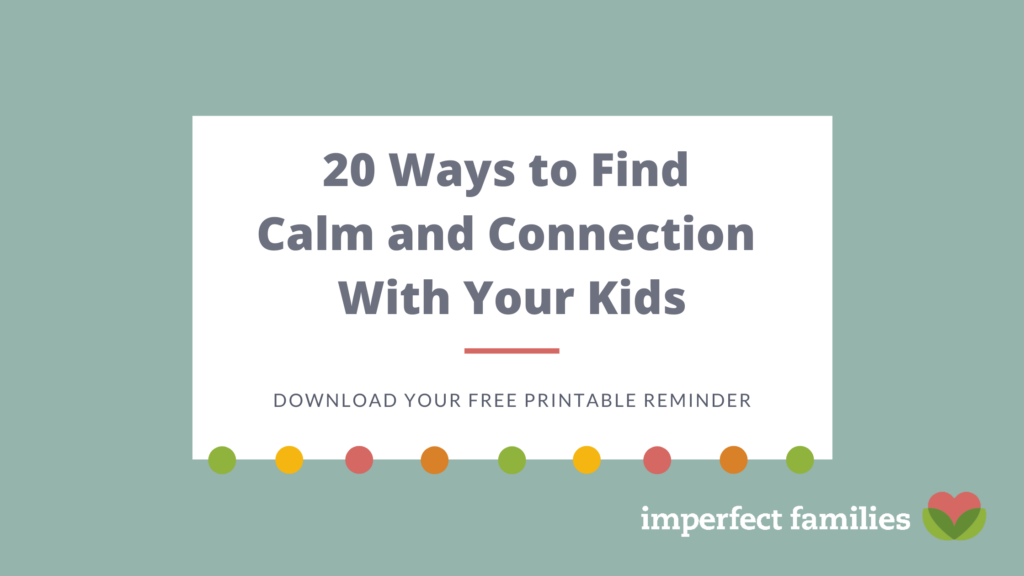
You think he’s too soft on the kids. He thinks you put too much pressure on them.
You think he’s too strict about homework. He thinks you baby them at bedtime.
And this is just the tip of the iceberg.
In the middle of a stressful parenting situation, when the stakes are highest, the conversation often shifts from the kids to the other parent’s choice of interaction (or lack of involvement) in the problem.
The kids are confused. The two of you are arguing.
Is there a way to find a middle ground?
Getting on the same page with your parenting
Look at the big picture. It’s easy to get hyper-focused on the details of daily life and forget that raising children is a long process. Discuss your hopes and dreams for your kids as they grow into successful adults. Then, imagine your kids learning, practicing, and gaining mastery of these skills over time, rather than in a single moment or interaction.
Identify priorities. Now that you have the long-term vision, identify things that are most important to you. Compare lists and be curious about the differences. Are there places you are saying the same things but with different words? Be willing to talk about your own childhood, how it impacts who you are today and what you want (or don’t want) for your children.
Start with similarities. You don’t have to do a complete overhaul of your entire parenting philosophy in a day. Find something you can agree on and start there. Even if it’s “small” or seems like it’s not going to make a difference. The goal is to move toward the middle, finding what works for both parents and each child.
Listen. Even though one parent may be more familiar with parenting strategies and implementation, be careful not to overpower the conversation. Engage the other parent in a respectful conversation, ask open-ended questions, be willing to stop talking long enough to hear their perspective and point of view.
Explore options. Read up on different strategies and see how they align with your long-term goals and priorities. If it doesn’t seem to fit or if one parent is unsure, look for something else or continue the conversation. The first solution may not be the one that works best. Revisit, revise, and allow for flexibility as you learn new strategies and find a common ground.
Embrace differences. One parent may be great at roughhousing, the other may be fantastic at storytelling. You don’t have to do things exactly the same to be an effective co-parenting pair. Work to create space for one parent to do what they do best, while you step into support mode and vice versa
What if your co-parent isn’t interested in getting on the same page?
Be patient. Forcing someone to do something is not an effective way to create change. Instead of demanding that your co-parent agree with your perspective, give them time and space to process, think, and explore other parenting options.
Offer resources. If your co-parent is open to learning more, provide blog posts, articles, books and/or videos that they can review on their own time. Again, don’t push it. Let them know you’re ready to discuss it when they’re ready.
Ask for what you need. In some situations, co-parents are willing to support the other parent, even though they may not agree with the methods, if they are asked. Use “I statements” and clearly explain how they can help
Notice what works. If you have a positive experience or notice a positive change, share it with your co-parent in a non-judgmental way. Let them know that you’ve had success without demanding that they do the same.
Delay the conversation. Save parenting conversations for quiet moments when the kids are out of earshot. Don’t hash it out or correct the other person’s parenting in the heat of the moment when everyone’s upset.
Stay focused on the kids. Parenting conflicts are often a sign of deeper issues. Use caution that these discussions don’t become about controlling your co-parent, taking something out on them, or teaching them a lesson.
Seek help. Many parents struggle to have respectful, productive conversations on their own. There’s no shame in seeking the support of a Marriage Therapist, Family Therapist or Parent Coach. If your co-parent is unwilling or unable to have parenting conversations with you, it still can be beneficial to talk to someone about your challenges and concerns.



Comments have been turned off to retain the privacy of all families. If you have a question or comment on the topic, you're always welcome to contact me.